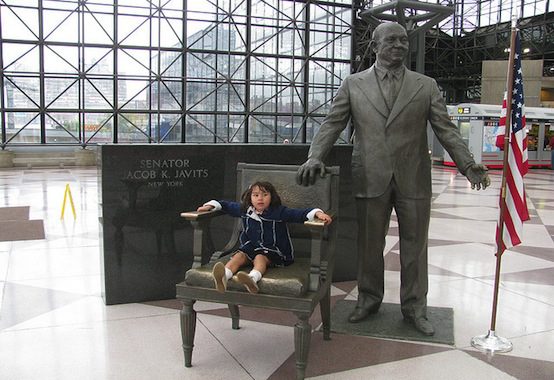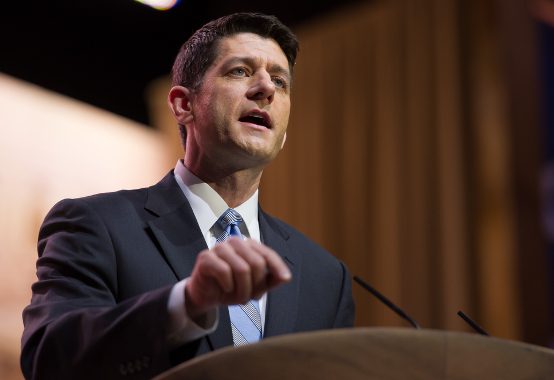Maybe Kevin Williamson Wants to Rebuild a Republican Big Tent

Several critics of Kevin Williamson’s 2012 piece celebrating the Republican party’s record on civil rights charged that Williamson had conflated “Republican” and “conservative”: sure, the GOP of the ’50s and ’60s looks kosher on race if you ignore that fact that, back then, there used to be lots of liberal northeastern Republicans and conservative southern Democrats.
Williamson responded:
[A] lot of those so-called liberals from the northeast who supported civil rights look pretty good by today’s Republican standards: sober, free-enterprise, small-government guys. Not ideological flamethrowers, to be sure, but not as bad as we remember them.
It would appear that Williamson is up to something similar in his reappraisal of President Dwight Eisenhower in the current print edition of National Review:
Eisenhower may have sometimes called himself a progressive, but his bedrock priorities—a strong military, balanced budgets, and limited government—are classical conservativism.
Williamson never specified who “a lot of those so-called[!] liberals from the northeast” were. I’ll try to fill in the blanks (and extend the category to states like California and Maryland and Illinois): Jacob Javits. Ken Keating. Irving Ives. Clifford Case. Thomas Kuchel. Hugh Scott. Edward Brooke. Charles Mathias. Charles Percy.
I’ll stop there. For more, check out the book Geoffrey Kabaservice recently published about the defunct Rockefeller wing of the Republican party. I find it hard to imagine Williamson believes that Javits—who wrote a manifesto in 1964 assailing the Goldwater right—or any one of the aforementioned would make it in today’s Republican party. Judging from Williamson’s favorable summation of Ike’s record of prudence and caution on foreign policy, and his deft maneuvering around both the labor left and the McCarthy right, it seems to me he’s genuine when he writes that “Eisenhower had a deep appreciation for those most conservative of virtues: steadiness, judgment, predictability, attention to detail.”
There is more—much, much more—to conservatism, in other words, than “ideological flamethrowing.”
Maybe Williamson’s critics aren’t hip to what he’s trying to bring about: a revitalized Republican big tent.
I won’t go so far as to say Williamson agrees with Sen. Rand Paul, who said, “There’s room for people who believe in bigger government in our party.”
So I’ll say it for myself: The Republican party was better off when it had a moderate wing. A bona fide national party, if nothing else.
There’s no turning back the clock, of course. Republicans can no more reabsorb moderates (notice I didn’t say “independents“) than Democrats could successfully woo southern conservatives. A new coalition will have to be formed. But recognizing the greatness, the conservatism, of Ike is a worthy baby step. Dare I say it, Williamson and I are on the same page:
[W]here the ideologue sees a two-dimensional world with endpoints marked “Freedom” and “Slavery,” Ike saw the world in three dimensions. Just as his innate sense of realism and caution led him avoid unnecessary war, Ike’s fundamental lack of zeal helped him see that an ideological war on the New Deal would lead to, yes, quagmire—something very like what we’re experiencing today. Therefore, he employed his vice president, Richard Nixon, to run interference with the likes of Joseph McCarthy, and he quietly and unflashily went about the business of maintaing a course of peace, stability, and incremental racial progress.
